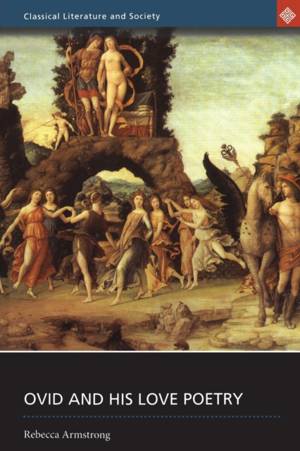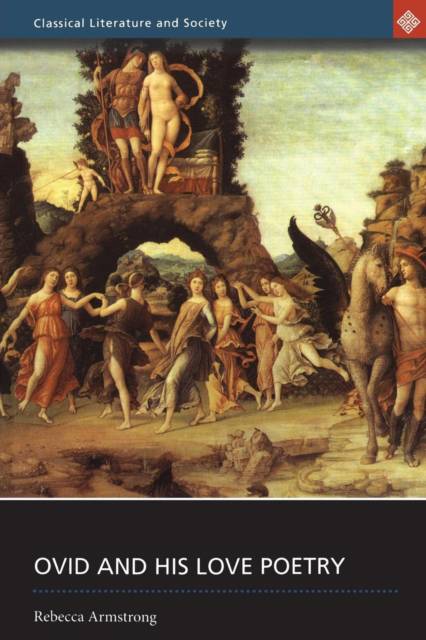
- Afhalen na 1 uur in een winkel met voorraad
- Gratis thuislevering in België vanaf € 30
- Ruim aanbod met 7 miljoen producten
- Afhalen na 1 uur in een winkel met voorraad
- Gratis thuislevering in België vanaf € 30
- Ruim aanbod met 7 miljoen producten
Omschrijving
Ovid devoted about half of his poetic career to the production of several collections of amatory verse, all composed in elegiac couplets. Indeed, his irrepressible interest in love, sex and elegiac poetry is one of the defining features of his entire output. Here Rebecca Armstrong offers a thematic examination of some important aspects of the Amores, Ars Amatoria and Remedia Amoris. Starting from an investigation of the narrator's self-creation and presentation of other characters within his amatory verse, she assesses the importance of mythical and contemporary reference, as well as the influence of the erotic on Ovid's later works. By looking at the Ars and Remedia alongside the Amores, the continuities and contradictions in the poet's elegiac outlook are revealed, and a complex picture is formed of the Ovidian world of love. Ovid's erotic works present the reader with a glimpse inside the minds of both poets and lovers, mediated through eyes which are frequently inclined to comedy and even cynicism, but always sharp, perceptive and above all fascinated by human behaviour.
Specificaties
Betrokkenen
- Auteur(s):
- Uitgeverij:
Inhoud
- Aantal bladzijden:
- 192
- Taal:
- Engels
- Reeks:
Eigenschappen
- Productcode (EAN):
- 9780715632895
- Verschijningsdatum:
- 30/06/2005
- Uitvoering:
- Paperback
- Formaat:
- Trade paperback (VS)
- Afmetingen:
- 159 mm x 234 mm
- Gewicht:
- 362 g

Alleen bij Standaard Boekhandel
Beoordelingen
We publiceren alleen reviews die voldoen aan de voorwaarden voor reviews. Bekijk onze voorwaarden voor reviews.







